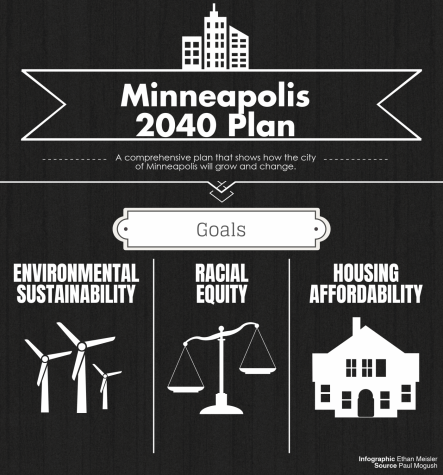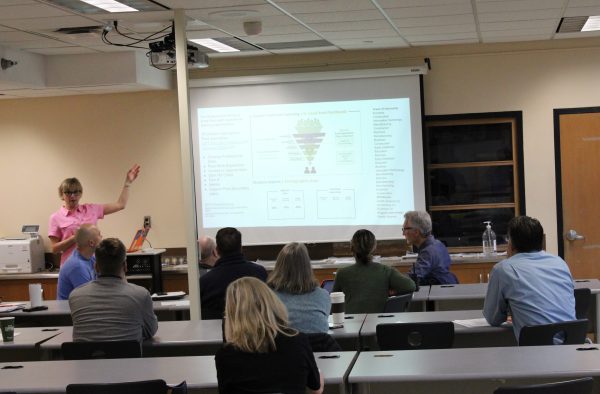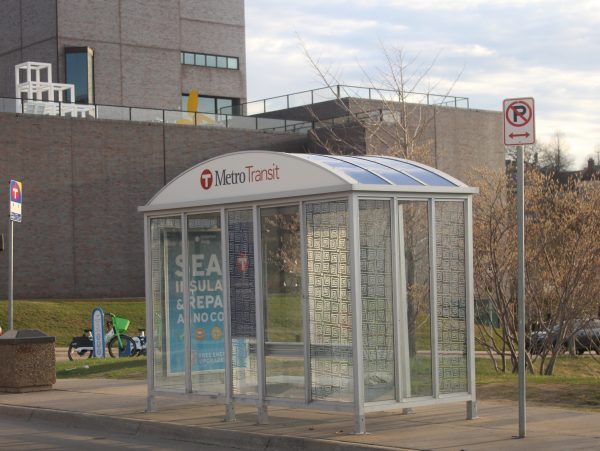Minneapolis 2040 Plan passes vote
Recent changes will be reviewed by the Metropolitan Council
December 23, 2018
According to Paul Mogush, manager of community planning for the city of Minneapolis and manager of Minneapolis 2040, the Minneapolis 2040 Plan has been revised and officially passed the final City Council vote.
“The plan has gone through three major stages of revisions. We received comments from the public, then the plan went to the planning commission, then it went to the City Council,” Mogush said. “Last Friday, the City Council took the final vote to approve the plan.”
Junior Jackson Kubitza said he believes the modifications are for the better, as they can only improve the existing plan.
“I think they want to keep making it better and maybe focus on including everyone in the plan to help everyone’s voice be heard,” Kubitza said.
Freshman Molly Schochet said the ongoing revisions are necessary to account for the growing population, and to make sure it is the best fit.
“The world keeps changing and what is best for the economy keeps changing,” Schochet said.

Mogush said the plan is in place to account for the growing city as well as the residents the city is already home to.
“We expect that the city will grow by another 40,000 (residents) or so,” Mogush said. “We have really big disparities — racial disparities — in our city and in our state. If we just grow without addressing those disparities, they will get worse.”
According to Kubitza, the transportation part of the plan is too focused on public transportation and not enough on other forms, which may lead to issues down the road.
“I think they need to change their focus on transportation a little bit,” Kubitza said. “In my opinion, cars and public transportation need to work together because we are still very car dependent. You cannot just take that away. You have to gradually phase it out.”
After two and a half years of planning, Mogush said the goals of Minneapolis 2040 are to better the community and allow for positive city development.
“The overall direction of the plan is growth, environmental sustainability, racial equity and housing affordability,” Mogush said.
Mogush said the nearly 100 amendments brought up by the City Council are smaller changes, many of them on the maps generated by the plan.
“A lot of the changes the City Council made in the couple of weeks leading up to the approval last week were to those maps. One is a future land use map, and the second is a built form map,” Mogush said. “None of them changed the overall direction of the plan, but they provided additional nuance and detail.”
Schochet said re-zoning allows cities to rebuild the area to accomplish goals in a more efficient way.
“When you rezone places, it can make room for more housing, or they can change to be more economically sustainable and rebuild that way,” Schochet said.














